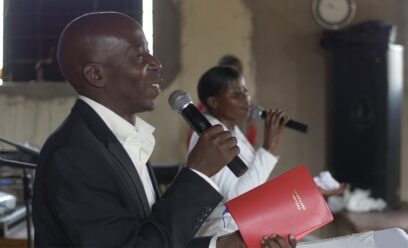Current Bioethics Issues – February 2025
Westminster Parliament Accepts Assisted Dying at Second Reading
On the 29 November 2024, the House of Commons of the Westminster Parliament accepted, by 330 in favour to 275 against, the Second Reading of the Terminally Ill Adults (End of Life) Bill, which was introduced by Kim Leadbeater MP. If this Bill eventually becomes law, it will legalise assisted suicide in England and Wales for persons who (1) have the mental capacity to make such a decision, (2) have been given a terminal diagnosis and (3) are expected to die within six months. There are also layers of suggested safeguards involving doctors and judges.
This vote means that a majority of MPs in the House of Commons of the Westminster Parliament have, unfortunately, accepted the dangerous concept of a ‘life unworthy of life’, which is a notion that should never be accepted in a civilised society. Vulnerable people need to know that society is committed first and foremost to their well-being, even if this does involve expenditure of time, effort, and money.
Though the concept of autonomy is extremely important in medicine, there are times when the inherent value and worth of all human life, because it is created in the image of God, must take priority over autonomy for a civilised society to survive.
A similar vote in the Scottish Parliament is expected in the spring of 2025 but the Westminster outcome will have significant consequences for both Scotland and Northern Ireland.
Most recent (2023) numbers of births in England and Wales published
Official government statistics showed that there were 591,072 live births in England and Wales, which is the lowest number of births since 1977 (569,259). The total fertility rate in England and Wales dropped to 1.44 children per woman, its lowest value since records began in 1938. Wales and the North-West of England experienced the largest declines in total fertility rate compared with 2022.
The average age of fathers increased to 33.8, while mothers’ average age remains stable at 30.9 compared with 2022. The report also indicated that age-specific fertility rates declined in almost all age groups.
Stillbirth rates remain stable in England at 3.9 stillbirths per 1,000 births, but in Wales rates have decreased from 4.4 in 2022 to 4.0. Stillbirth rates decreased in the Black, Mixed or multiple, and White ethnic groups for England and Wales compared with 2022. However, rates increased in the Asian and other ethnic groups.
Interestingly, Boxing Day (26 December) remained the least likely birth date for the 11th year in a row.
Development of Synthetic Human Eggs and Sperm
In January 2025, the UK Human Fertilisation and Embryology Authority examined the development of In-vitro gametes (IVGs), which are synthetic eggs or sperm cells that are created in the lab from genetically reprogrammed cells taken from the human body. Such lab-grown eggs and sperm cells are being considered by Silicon Valley scientists who suggest that they could become a reality within a decade. This would enable:
- The creation of very large numbers of embryos in the lab by a couple, whereby the ‘best’ ones (with desirable biological traits) could then be selected for implantation. In other words, a form of eugenics would develop enabling parents to have the best children ‘of their own’ (whatever this expression means)!
- Enable same-sex couples to have biological children ‘of their own’ together. For example, one woman could provide the egg and the other woman the IVG sperm cells. After fertilisation in the laboratory through IVF (In Vitro Fertilisation), the resulting embryo could then be implanted into one of these women for gestation.
- Reverse parenting for married couples who may want, for some reason, the husband to generate the egg and the wife the sperm cell.
- Solo parenting, whereby a prospective mother could create her own IVG sperm and self-fertilised herself to become both the mother and the ‘father’ of her child. (A very good 20 min film about this possibility can be accessed here)
- Multiplex parenting, whereby two couples produce two embryos through IVF in the laboratory and cells from these embryos are then used to derive IVG eggs and sperm. These would then be brought together through IVF to generate a final embryo, for whom the parents would be the embryos but with four living adult biological grandparents. This may be considered by a ‘foursome’ who want to create a new life together for some reason.
Very few Christian churches and theologians have yet considered the ethical perspectives of generating children using some of these procedures.
Unprecedented rise in women being prosecuted for ending their own pregnancies
It was reported, in January 2025, that six women have appeared in court over the past two years under the Offences against the Person Act. This is significant since only a handful of known convictions have occurred since this law was introduced in 1861.
Since the 1967 Abortion Act, a healthcare professional undertaking an abortion is not prosecuted if two doctors agree that continuing the pregnancy would represent a physical or mental health risk for the woman and the procedure is undertaken before 24 weeks of gestation. But the 1861 law was never repealed and it is still a criminal offence in England and Wales to procure an abortion with a maximum sentence of life imprisonment.
The rise in the number of illegal abortions is very likely due to abortion drugs now being available at home (since the introduction of this possibility during the COVID pandemic) and women taking these drugs after the 24-week limit.
More than 30 groups, which represent about 800,000 healthcare professionals, are now calling for such prosecutions to stop, indicating that abortion should only be a healthcare issue and not a criminal one. This position, however, is extraordinary since the topic of abortion has always been both a healthcare and a human-rights matter. Indeed, any improper act by the mother or any other person intending to destroy a foetus constitutes a crime under the 1861 Act because this foetus is not considered to be devoid of moral status. This means that reducing abortion to essentially a healthcare matter, as is suggested by these healthcare professionals, would inappropriately distort the legal setting of abortion in England and Wales.
Only one doctor in Scotland is trained to undertake surgical abortions after 15 weeks
Surgical abortions are terminations of a foetus in which surgical instruments are used for a uterine evacuation, with the most common method being vacuum aspiration, which generally take place after 15 weeks of gestation. This is in contrast to medical abortions, in which drugs are used to induce the expulsion of an embryo/foetus from the womb. The majority of pre-9-week terminations are medical abortions.
In November 2024, however, it was indicated that only one doctor in Scotland has been trained to provide surgical abortion care to the UK legal limit of 24 weeks into a pregnancy. This means that many women have to go to England to obtain a surgical abortion after 15 weeks of gestation.
It remains unclear why Scotland’s delivery of abortion services is more restrictive than other areas of the UK, with academic literature published in 2015 suggesting that beliefs relating to the moral status of the prenatal child, limited resources, and ‘institutional inertia’ being significant factors. In addition, a survey of practitioners at a conference for abortion care providers in Scotland, which was published in 2013, showed that only a quarter of participants were prepared to administer late abortion procedures, with lack of expertise, lack of medical centres, lack of support from senior hospital management, and nurses’ unwillingness to participate in late abortions, all cited as reasons.




